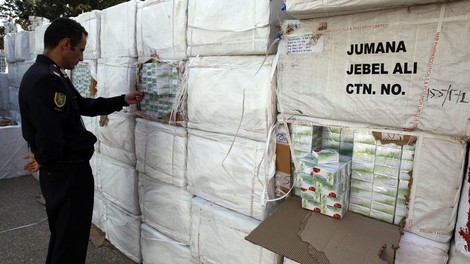Your podcast discovery platform
Curious minds select the most fascinating podcasts from around the world. Discover hand-piqd audio recommendations on your favorite topics.

piqer for: Global finds
Ciku Kimeria is a Kenyan author "Of goats and poisoned oranges" - (https://www.amazon.com/goats-poisoned-oranges-Ciku-Kimeria-ebook/dp/B00HBBWPI6), development consultant, adventurer and travel blogger (www.thekenyanexplorer.com). She writes both fiction and non-fiction focusing on African stories that need telling. She has worked on diverse pieces for various international and local publications including Quartz, Ozy, The East African etc. She has travelled to 45 countries – 16 of them in Africa. 153 countries to go and 63 territories!
"Of goats and poisoned oranges" has been extremely well received in Kenya and beyond. It tells the story of a Kenyan middle aged power couple and their complicated marriage. The novel explores issues of greed, revenge, betrayal and murder. It runs from the 1960s to 2013. It has been described as “Wicked, funny, poignant, wacky, human, a big ball of fun and danger”, “A unique and captivating book”, “Fun and intriguing”, “Impossible to put down once you start reading.”
She recently moved to Dakar, Senegal from Kenya to work on her second novel. She also works at as the Africa Communication Manager at a leading global strategy consulting firm.
She holds a B.S. in Management Science from MIT with minors in Urban Planning and International development studies.
Africa's Opioid Crisis
As the opioid crisis unfolds in the West, another opioid crisis is unfolding in Africa even as the continent remains one of the regions least served with pain medication.
In Gabon, where Tramadol is known as “Kobolo”, high school teachers are struggling to contain a crisis. Upon request, some of Khartoum’s roadside tea-sellers are even known to drop the painkiller in a cup of tea.
What really makes Africa's opioid challenge worse than the US one is that the continent's health system is completely unprepared to deal with the crisis. The weak regulation around the use of opioids in the continent is also a contributing factor. While Tramadol cannot be given to a patient without a doctor's prescription in certain countries, in others it's extremely easy to obtain it.
Tramadol has been found in the pockets of captured Boko Haram fighters as well as those who were killed in combat and suicide bombings. So while Tramadol is difficult to get from pharmacies without a prescription in many African countries, it can very easily be acquired from the dark alleyways of Bamenda, Newtown, Freetown or Libreville and under the table mats of rat poison vendors.
At the global level, Tramadol has not been regulated by the International Narcotics Control Board at the request of the World Health Organization. WHO wants to ensure that people in need of pain medication on the continent do not have a difficult time obtaining it. While this has meant that there is a steady affordable supply of Tramadol coming into the continent, it has also meant that with weak regulation, it can fall into the wrong hands.
There is also the need for medical intervention to help addicts wean themselves off the pills. For now, the likes of Ali, after seeing the pernicious effects of recreational Tramadol, are taking personal responsibility for their detoxification. But without a structured regime of rehabilitation, it is difficult to see how successful this self-journey will be.
